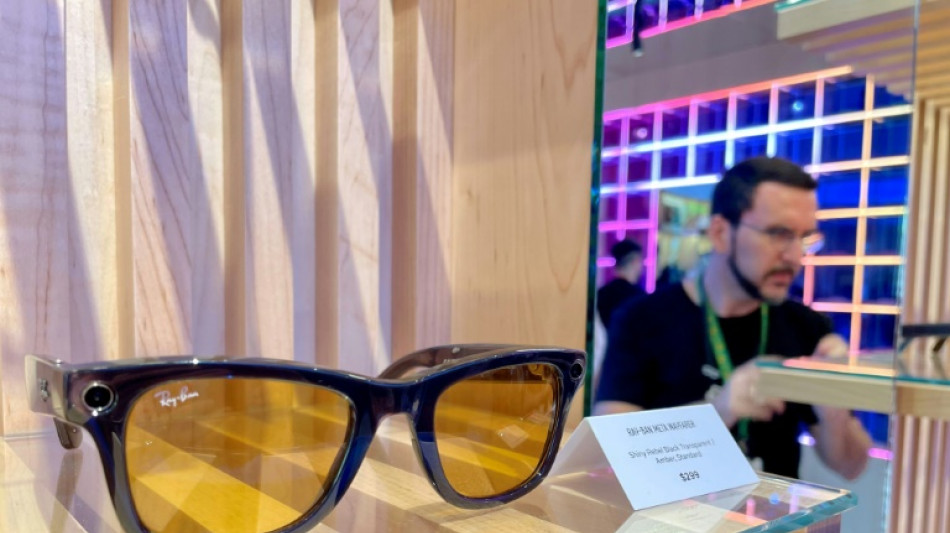
-
 US Supreme Court allows third country deportations to resume
US Supreme Court allows third country deportations to resume
-
Oil prices tumble as markets shrug off Iranian rebuttal to US

-
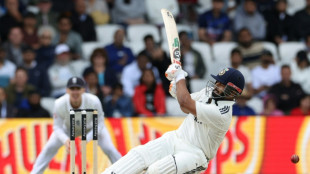 Rishabh Pant: India's unorthodox hero with 'method to his madness'
Rishabh Pant: India's unorthodox hero with 'method to his madness'
-
PSG ease past Seattle Sounders and into Club World Cup last 16

-
 Atletico win in vain as Botafogo advance at Club World Cup
Atletico win in vain as Botafogo advance at Club World Cup
-
Osaka, Azarenka advance on grass at Bad Homburg

-
 Haliburton latest NBA star with severe injury in playoffs
Haliburton latest NBA star with severe injury in playoffs
-
Trump wants quick win in Iran, but goal remains elusive

-
 Iran attacks US base in Qatar, Trump says time to make peace
Iran attacks US base in Qatar, Trump says time to make peace
-
Kasatkina falls, Fonseca secures first win on grass at Eastbourne
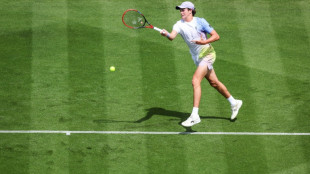
-
 Iran attacks US base in Qatar in retaliation for strikes on nuclear sites
Iran attacks US base in Qatar in retaliation for strikes on nuclear sites
-
Club World Cup prize money does not mean more pressure: Chelsea boss Maresca

-
 Leeds sign Slovenia defender Bijol from Udinese
Leeds sign Slovenia defender Bijol from Udinese
-
E.coli can turn plastic into painkillers, chemists discover

-
 Bluff and last-minute orders: Trump's path to Iran decision
Bluff and last-minute orders: Trump's path to Iran decision
-
US strikes on Iran open rift in Trump's support base

-
 Indiana's Haliburton has torn right Achilles tendon: reports
Indiana's Haliburton has torn right Achilles tendon: reports
-
England rally after Pant heroics to set up thrilling finish to India opener

-
 US hit by first extreme heat wave of the year
US hit by first extreme heat wave of the year
-
Holders Thailand among seven set for LPGA International Crown
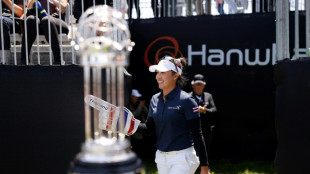
-
 England set 371 to win India series opener after Pant heroics
England set 371 to win India series opener after Pant heroics
-
UK and Ukraine agree to deepen ties as Zelensky meets Starmer

-
 New York state to build nuclear power plant
New York state to build nuclear power plant
-
Syria announces arrests over Damascus church attack

-
 Bradley eyes playing captain role at Ryder Cup after win
Bradley eyes playing captain role at Ryder Cup after win
-
US existing home sales little-changed on sluggish market

-
 Top US court takes case of Rastafarian whose hair was cut in prison
Top US court takes case of Rastafarian whose hair was cut in prison
-
Greece declares emergency on Chios over wildfires

-
 Embattled Thai PM reshuffles cabinet as crisis rages
Embattled Thai PM reshuffles cabinet as crisis rages
-
Killer whales spotted grooming each other with seaweed

-
 Where is Iran's uranium? Questions abound after US strikes
Where is Iran's uranium? Questions abound after US strikes
-
EU approves MotoGP takeover by F1 owner Liberty Media

-
 Duplantis says vaulting 6.40m is within the 'realm of possibility'
Duplantis says vaulting 6.40m is within the 'realm of possibility'
-
Pant piles on agony for England with record-breaking century

-
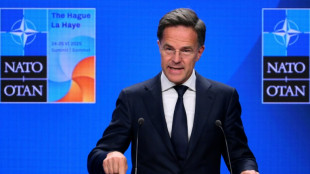 NATO to take 'quantum leap' with 5% summit pledge: Rutte
NATO to take 'quantum leap' with 5% summit pledge: Rutte
-
Textor sells Crystal Palace stake to boost hopes of European competition

-
 Earth's satellites at risk if asteroid smashes into Moon: study
Earth's satellites at risk if asteroid smashes into Moon: study
-
Syria president vows those involved in church attack will face justice

-
 Russian barrage kills 10 in Kyiv, including 11-year-old girl
Russian barrage kills 10 in Kyiv, including 11-year-old girl
-
Military bases or vital waterway: Iran weighs response to US strikes

-
 Italian sculptor Arnaldo Pomodoro dies aged nearly 99
Italian sculptor Arnaldo Pomodoro dies aged nearly 99
-
Rahul and Pant build India lead against England
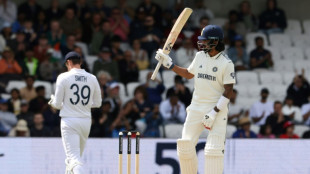
-
 UK probes maternity services after scandals
UK probes maternity services after scandals
-
Asian countries most vulnerable to Strait of Hormuz blockade

-
 Anger as Kanye West to perform in Slovakia after Hitler song
Anger as Kanye West to perform in Slovakia after Hitler song
-
Israel targets Iran Guards, Tehran prison in fresh wave of strikes

-
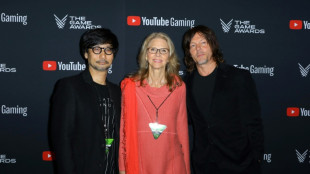 Star-packed, Covid-shaped 'Death Stranding 2' drops this week
Star-packed, Covid-shaped 'Death Stranding 2' drops this week
-
IOC is in 'best of hands', says Bach as he hands over to Coventry
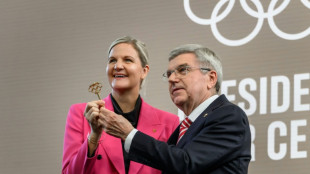
-
 Oil prices seesaw as investors await Iran response to US strikes
Oil prices seesaw as investors await Iran response to US strikes
-
Beijing issues weather warning for hottest days of year


Wearable tech has far to go before challenging smartphones
Wearable gadgets like smart watches and glasses are growing more capable every year, but experts say smartphones will remain ubiquitous for the foreseeable future -- not least thanks to artificial intelligence features.
A slew of wearable products and prototypes were on show at the Mobile World Congress in Barcelona Monday, even as smartphone makers and network operators played up AI integration as making handsets more useful.
Such "new product ranges allow manufacturers to diversify the hopes until now placed in phones" said Cesar Corcoles, an IT and telecoms professor at the Open University of Catalonia.
The trade show in Barcelona will see "prototypes and demonstrations of smart glasses that place a small, very limited screen in front of our eyes".
Smart glasses have seemed on the horizon for more than a decade, with Google's Glass headset and camera released in 2013 -- although it has since been discontinued.
Meta has encountered more success recently with its frames developed alongside Ray-Ban, offering features including a built-in camera, music playback and voice interactions with the company's AI.
Yann LeCun, star AI researcher at the company which owns Facebook and Instagram, is often seen showing off the glasses at public appearances.
Worldwide, the market for smart glasses appears to be surging in terms of unit sales, with a 210-percent year-on-year increase in 2024 according to specialist research firm Counterpoint -- far faster than the seven-percent growth in smartphone shipments calculated by analysts Canalys.
- 'Cool gimmick' for now -
But comparing the number of devices rather than growth rates, last year's roughly two million pairs of smart glasses barely register compared to the 1.2 billion smartphones sold.
Counterpoint predicts the glasses market will grow further in the coming years as more producers -- from social media giants to smartphone makers -- look to claim a piece of the action.
Other wearable categories may need longer to take off, with the recent shutdown of "AI Pin" maker Humane a sign some wearable tech is not yet mature.
Designed to be worn at chest level like a brooch, the would-be smartphone replacement incorporating a camera and mini projector was designed to be used via AI-powered voice interactions but received poor reviews.
Humane has now been sold to HP after the device failed to make the hoped-for impact.
The "AI Pin" was "just not that useful yet", Canalys expert Jack Leathem said.
Voice-controlled devices are "a cool gimmick, but humans have become very, very used to text-based interactions on touchscreens," he added -- habits it would take a powerful sales pitch to change.
"The most challenging thing is getting people to change their behaviour," agreed Shen Ye of smartphone maker HTC's Vive wearables arm.
"We still use a QWERTY keyboard because it's what we're used to... even though there are probably much better ways of typing," he added.
- AI on your phone -
Beyond consumer inertia, wearable tech is still up against engineering challenges stemming from its bid to squeeze smartphone-like functionality into a smaller package.
"There are limits around the computing power currently and battery performance," Leathem said. "You can't make them that compact."
That's one reason why smart watches able to make calls and send messages largely remain tethered to wearers' smartphones for now.
"Every smart watch that comes out now is there to interact with a smartphone, not to replace it. It's an accessory," Leathem said.
What's more, manufacturers are incentivised to get consumers buying a wider range of gadgets rather than simply swapping one for another.
And even as wearables become more useful, AI is expected to pump more value into smartphones themselves.
The latest offerings from Apple, Samsung or China's Xiaomi have bet on offering users integrated "AI assistant" features.
"All the money is going into AI... their vision of the future is keeping the same smartphone form factor, but making it way more useful," Leathem said.
Canalys predicts that the share of smartphones sold worldwide with AI features will leap from 16 percent at present to more than half by 2028.
E.AbuRizq--SF-PST
